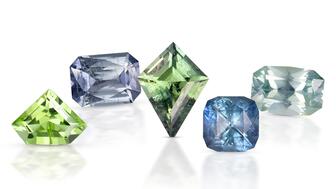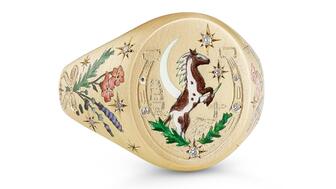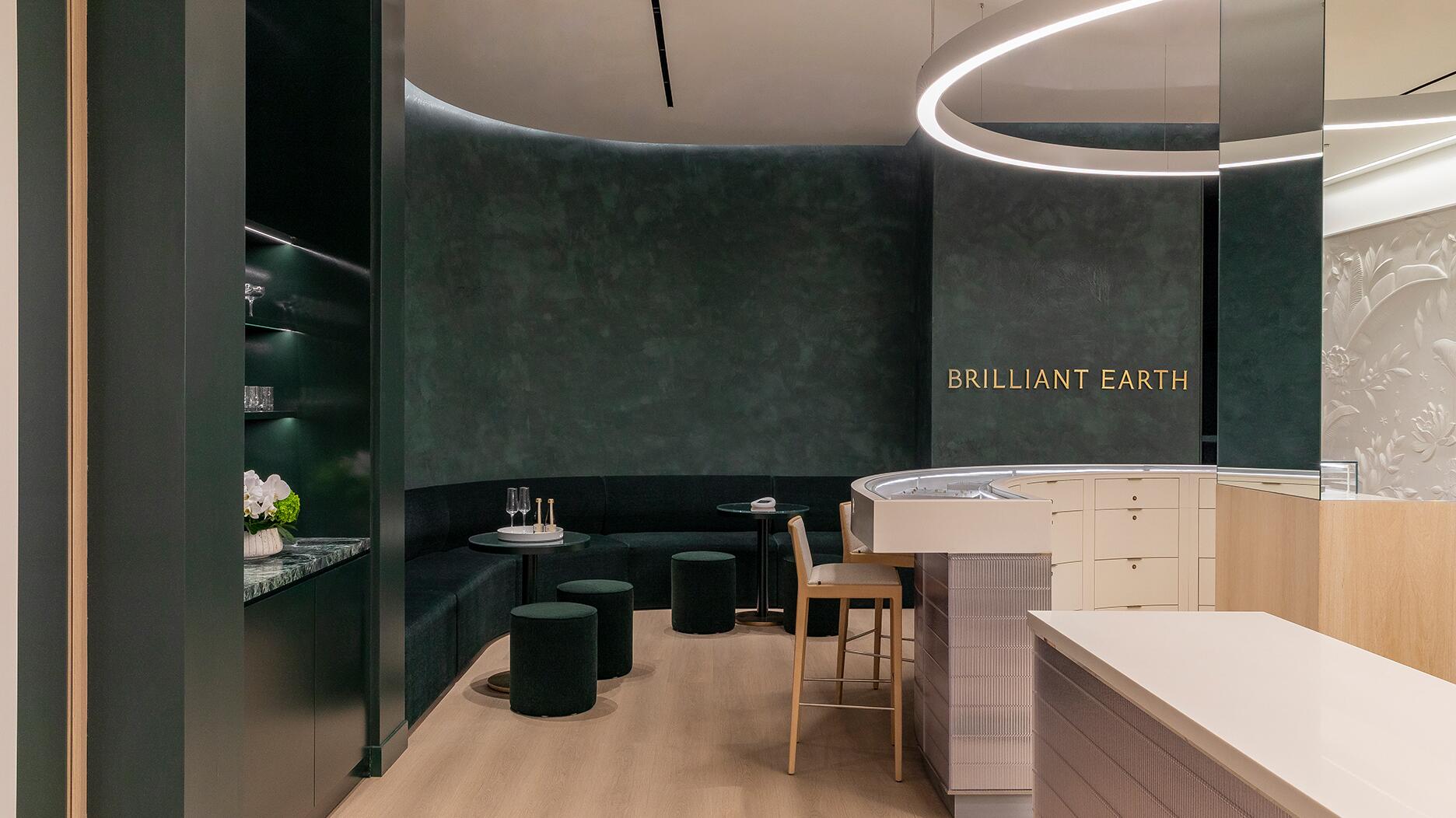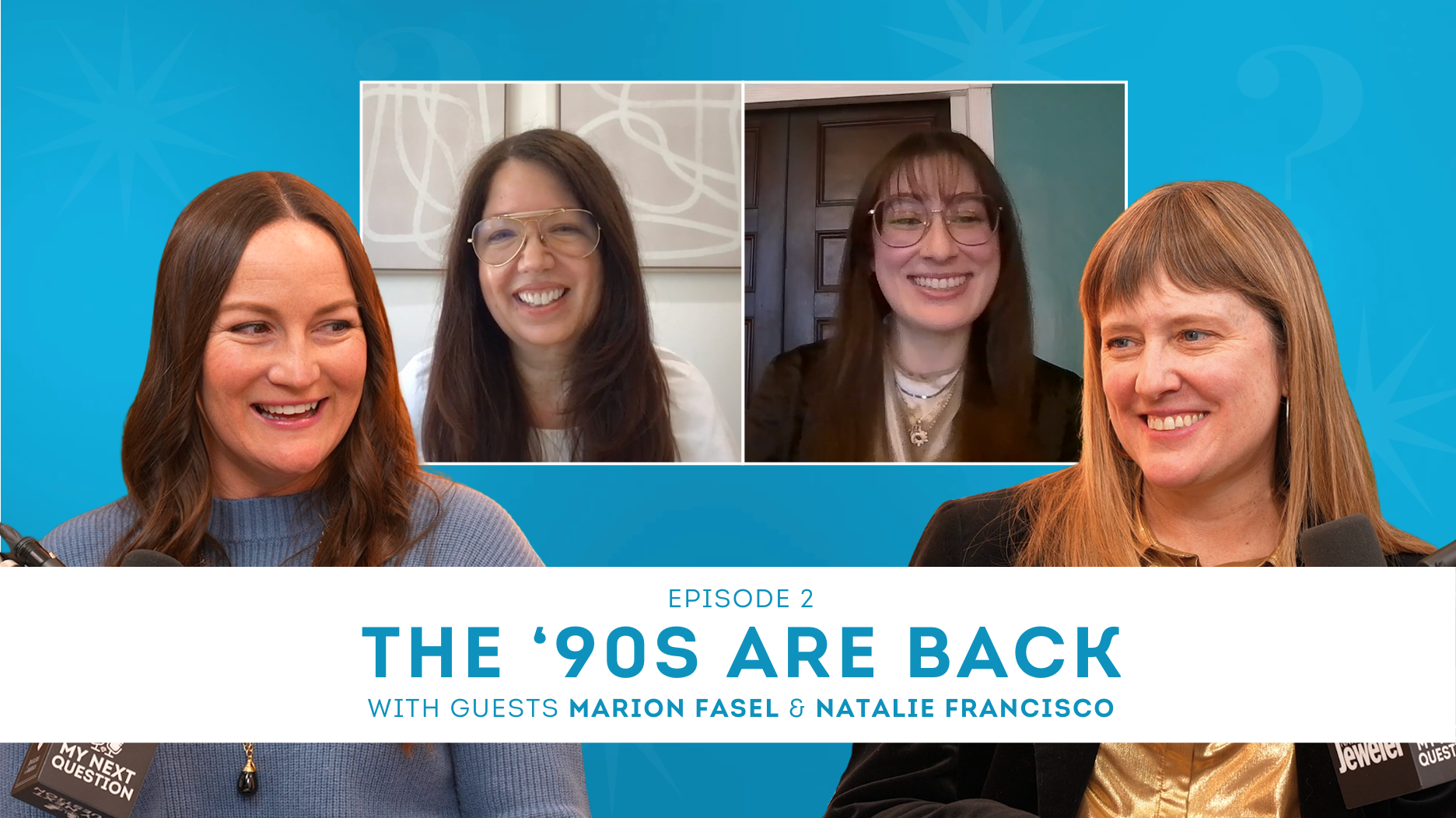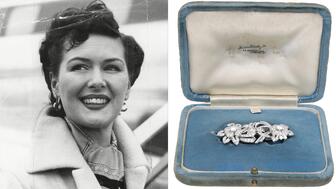The jewelry collection belonged to “one of society's most glamorous and beautiful women of the mid-20th century,” said the auction house.
Q&A: 11 Questions with Naseem Lahri
Lahri is the managing director of Lucara Botswana, which operates the Karowe mine. She’s the first woman—and the first female citizen of Botswana—to run a diamond mine in the country.

She was not only the first woman to hold such a position in Botswana, but also the first female citizen of her country to do so.
Earlier this summer, I caught up with Lahri (virtually, of course) for an interview. We talked about her early career ambitions, how you run a diamond mine during COVID-19, and lessons learned from managing a situation for which you’ve received no training.
This interview has been edited for length and clarity.
National Jeweler: Before you started working at Lucara you were with Debswana, the joint venture between De Beers and the government of Botswana, for a decade. Was that your first job out of school?
Naseem Lahri: No. My first job was actually at an audit firm called Deloitte & Touche; I’m sure you know them. I worked there for about two years, and then I moved to an insurance company.
Immediately after that, about a year later, I moved to Palapye, a little village outside of Gaborone (Botswana’s capital city). I think it’s two-and-a-half hours out of Gab, and I got introduced to mining there.
It was in 2001 … and I started a job at Morupule Colliery. That is a coal mine here in Botswana, and they are in the Debswana group. That’s how I got introduced to diamonds, two years after that.
NJ: I didn’t know Debswana had a coal mine.
NL: Yes. The coal mine that I worked at actually was owned by (De Beers parent company) Anglo American, and Anglo sold it off to Debswana. It was a strategic project that Debswana had taken on, and they still have it right now because of [the power]. Morupule actually provides coal to Botswana Power Corporation. They use the coal to generate power for Botswana.
“I understood that Botswana exports diamonds, but it’s always just a discussion in the back of your mind. It’s when you actually work in [diamond mining] that you realize what an impact it has on the country.”
NL: Oh, Debswana is the best platform to learn at because it’s a big organization. You’re able to move around, and I’m the kind of person that … gets stimulated through challenges.
I then went into insurance, and as I got into insurance, same old thing. After three months, you’re doing the same old thing again. It’s the same company, and you realize, ooh, maybe this is not what I’ve been cut out to do.
When I found the opportunity of Morupule, I realized that a mining company is where I belong, specifically because of the challenges that it brought on a daily basis. At that point the penny dropped for me.
Two years into the job, I got an opportunity to work at Debswana in the sales department at their corporate office in Gaborone, where I am right now.
So I get to the corporate office and I’m involved in diamond sales, and my God, I realized what the job meant to me—not even to me, to the country—you’re selling diamonds, and it’s impacting the bottom line of the country.
Yes, I understood that Botswana exports diamonds; diamonds, the only income generator; blah, blah, blah. But it’s always just a discussion in the back of your mind. It’s when you actually work in the organization you realize what an impact it has on the country.
When I realized that impact, I think the love of mining—specifically diamond mining—just grew exponentially and I realized, this is it, this is where I belong. And that’s where my aspiration of becoming the managing director of Debswana at the time came into play.
And that was always my ambition. I would work my way up to get to that position.
Earlier, you asked a question about Debswana and what they offer. They offer a wealth of knowledge, a wealth of experience because it’s a big organization. I personally don’t think that I would be able to do the current job that I’m in if I didn’t get that platform.
There’s a lot of great exposure that you get from Debswana. But unfortunately, the exposure that I wanted was to get to managing director level, and I [got] promotion after promotion, but it didn’t get me to the level that I needed to get to.
And that’s why I had to jump ship, because I could see I hit a glass ceiling and when I hit that glass ceiling, I had to move. There was no way that I could stay there. In fact, I should have moved a long time ago.
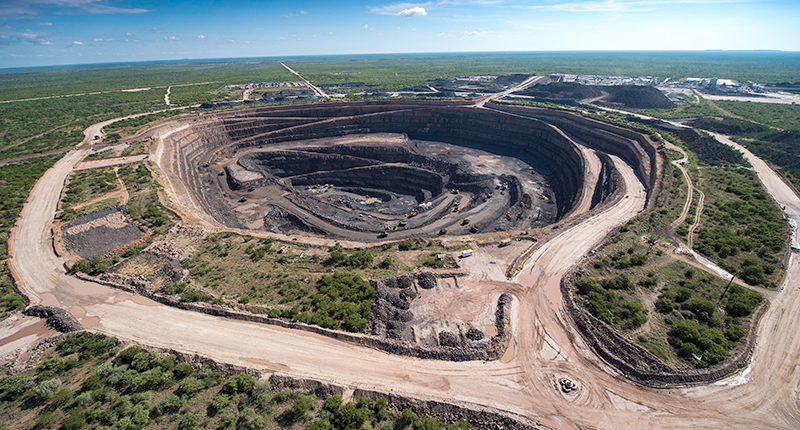
NJ: What do you mean when you use the phrase “hit a glass ceiling”?
NL: I got to a point where I could see, I couldn’t get further than this, yes, because firstly, I’m not a technical individual. I’m a chartered accountant, so in the administration area, I would have flourished.
Generally, admin in the mining industry you’ll see is many women. But in the technical area, it’s very difficult for women to actually move up.
At the time that I was at Debswana—I’m not saying that it’s exactly the same now—I was in the admin area, and aspiring to become this managing director of Debswana, the first female managing director of Debswana.
But I don’t think [people] heard me, if that makes sense, because I was targeted to become the group finance manager. There was no progression to becoming the MD.
It may not necessarily have been the policies of the company but it was the people who were heading the organization who potentially, probably, didn’t see a woman sitting in what they considered a technical position because I’m a chartered accountant. How does a chartered accountant run a diamond mining company without technical exposure?
But what people forget is that, as a chartered accountant or finance person, you have to learn all the departments so who better to promote than a chartered accountant, if you don’t have anyone in the field? We come with a wealth of experience on the commercial side, on the legal side, as well as the technical side. We are well-rounded.
NJ: So then what attracted you to Lucara?
NL: What made me move is the challenge of a new mining operation and setting up the processes and procedures. And I believe at that time I was going to deal with a company that had a negative cash flow.
I was coming from a company where everything was really nice and cushy, and I didn’t need to struggle for anything.
I had all the amenities that I needed. I had structure. I had systems in place. I had an amazing team, but I wasn’t being challenged. Again, I thrive on challenge, and I could see that I was just there.
That’s when I realized that I need to move, and that’s the opportunity that I got at Lucara, which was called Boteti Mining at the time.
They had been in inception for one year, so they were only in production for one year, and I thought I was going to jump into a company where I’d have to negotiate facilities and all these nice things. Obviously, setting up was definitely one of those things because when I joined, there were about three of us in the finance department. Now, we’re 20 people.
And I grew in that organization.
I was working with very progressive men, and when I did bring up the idea of [me becoming] managing director, eventually, of the organization, it was not shunned. In fact, they were actually grooming me in my position, as CFO.
Yes, I was the only woman in the boardroom, but you know what, it was not unique in the mining industry [in 2013]. You generally get used to it. It’s very different now.
Three years down the line, I got the opportunity to take on security, which was very challenging for me.
I was very happy to do so because it was adding to my portfolio as an individual, and also to become a managing director, you need many portfolios in your box. So I needed to make sure that I was ticking all the right boxes to ensure that, when I do get the opportunity, I’m able to actually get the job.
So I was working toward the job anyway when (CEO) Eira (Thomas) joined in 2018. There was a whole reshuffle of management at the time.
I was very nervous, actually, when that happened because I was used to the management team that I was in and when Eira came in, I didn’t know who she was. I had never had exposure to her aside from a couple of visits to our operation. I thought to myself, ooh, maybe I should leave because I can see change coming to the local organization and I don’t know what that means.
Two quarters later, she promoted me to managing director. Sometimes, it’s about getting an inspirational leader into the position to see somebody like me, of value.
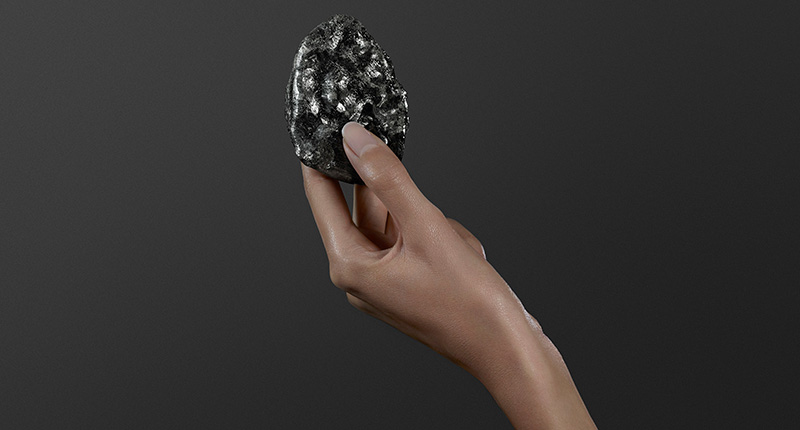
NJ: So this was May 2018. You were promoted to managing director of Lucara. Can you tell me a little bit about what your day-to-day is like? You’re the managing director of a diamond mine. How does that work?
NL: Every day is different. I think what is really key about the diamond industry is that my day in my organization is an impactful day for the nation.
Whatever decisions I make impact the bottom line of the country immediately. It’s not even 10 days down the line.
A typical week in my life is every exciting and enriching to my soul, because firstly, I meet a lot of people. I love interacting with people. The meetings and interactions that I have in relation to the decision-making capabilities, they actually lead to an impact on the bottom line of our country and the organization as well.
So I’m able to influence an individual, a family, a community, and the nation at large.
NJ: You’ve said every day, every week for you is different, which is exactly what you didn’t like about auditing or the other things you mentioned. They were more the same thing, over and over again.
NL: Yes. I don’t know if I’d be in this job if it wasn’t dynamic.
If anything makes me jump ship, it is mundane, routine things. I’m not that individual. I’m not that kind of person, come into the office and do exactly the same thing every day and expect things to change. I’m definitely somebody who wants to have an impact. If I feel change is required, it needs to happen.
I’m that individual who really wants to make that change for somebody else and the country as well.
NJ: So, speaking of things changing, obviously the whole world’s had a big change recently with COVID-19. Talk a little bit about how operations at the mine have changed in light of the pandemic.
NL: OK, yes. So C-19 … that’s something I’d never dreamt about. From a management perspective, you never train for these things.
With us in Botswana, mining is considered an essential service. So we were very close to the government organizations when we heard about COVID-19 and were seeing what was happening in southern Africa, in South Africa, Zambia, Zimbabwe.
We got faced with the first lockdown in South Africa, and we realized very quickly that Botswana was going to go into lockdown and had to reckon with, what does that mean for us as an organization?
When we heard that we were going to be an essential service, that was an even bigger challenge, because obviously social distancing, sanitization, all those things, you needed to be aware of what the protocols are within this environment, and how do you run a business in this environment.
But again, you see, I like challenges, and I’m very quick on my feet.
The minute we heard about what was happening in South Africa, we were already preparing.
We put a policy in place that nobody could travel. That was the first thing that we did toward COVID-19 preparedness, and that’s something that no company in Botswana did. We then also stopped travel between [the office and] the mine.
We put in all the protocols that we needed to, from social distancing to ensuring that the organization had proper sanitization spaces. We had a protocol in place of how we were going to react if an employee contracted COVID-19.
We were up to scratch in all those, and I’m not saying that because it’s the organization I run. It’s because that’s the way we do things. We’re generally very proactive.
We had communication platforms in play where I was able to talk to my team, 1,400 people on the ground, via live broadcast.
We started temperature testing a week into lockdown, so we were managing people through symptoms. Fortunately enough for us, we haven’t had a case.
NJ: You mentioned mining is an essential service in Botswana. Lucara’s mine, Karowe, actually never shut down. It kept functioning.
NL: Yes. We were consistently at work. So when people asked me, were you in a lockdown, I’m like, what is a lockdown? I was working the whole time, which was great for me, because I don’t know if I’d be able to survive locked in my house.
“We made sure that we treated COVID-19 with the seriousness that it needs.”
NJ: So for you it was just normal, the mine kept operating at full capacity and you kept going into work?
NL: Not necessarily. We had rotations. The way we were working is that we didn’t want too many people, especially [at the office] in Gaborone.
In Gab, we didn’t want too many people in one area at the office, so we were actually social distancing. We would actually have a roster of who would be in the office and that sort of thing. So we worked on those rosters to ensure that we’d limit the number of people.
We made sure that we treated COVID-19 with the seriousness that it needs.
We were working with people working from home.
We’re not in lockdown anymore, but we’re getting used to this environment because it works better. I don’t need to drive and get stuck in traffic for 30 minutes and not make a meeting, for example. I’m continuously working because I don’t need to drive to work anymore. I have the connectivity. I have the availability of [Microsoft] Teams now, Skype.
We’re doing things very differently, and I think it’s more efficient as well.
At the mine, though, we needed to manage 1,300 people. So that gets a little bit more challenging.
Social distancing was obviously key when the employees were coming on board to the mine site, and the way we structured our shifts was quite key to the social-distancing aspect.
We actually changed our mining operation as well, a little, so we stopped stockpiling and just did export.
You have less people on the ground and we were able to create more shifts to ensure that there was a full level of social distancing so that if there was a case of COVID-19, only one shift would be impacted, and not the entire team.
Sanitizing is key with COVID-19, so there was continuous sanitizing.
We also equipped our employees in such a way that they were able to talk to a psychologist throughout the lockdown, and they had access to communication from my end.
Initially, it was every three days, and then every week. And after the lockdown, it’s every two weeks, but we are in consistent communication with our staff, and they hear the messages from me.
That is quite critical, because the one thing I’ve learned through COVID-19—and I think it’s my personality anyway—is to be transparent with people, to tell them that we’re in this together.
It’s the first time that any one of us has been in a pandemic. It’s a situation that none of us have been in.
So I think for me that was quite key, and the other thing that I picked up through COVID-19 is, initially our employees, we needed to make them understand that we are looking after them.
We are looking after their safety, their well-being and not just them, their families, because in a pandemic scenario, that is quite key as well. It’s not about an individual.
NJ: One last question: Do you have a personal favorite piece of diamond jewelry?
NL: No, but I can tell you that I design my own jewelry, and my jewelry has to have a Botswana diamond in it. And the reason that I’m very particular about that is because I know that impact of a Botswana diamond.
I haven’t been able to source the Botswana gold yet. As soon as I do, then it’ll be Botswana gold and a Botswana diamond.
I think diamonds are amazing. Let me rephrase this—Botswana diamonds are amazing because the story that a Botswana diamond tells, no other diamond can tell.
I’ll always use this phrase, and you probably heard me using it earlier on in my conversation, that when I buy a Botswana diamond, I’m empowering a child, a family, community, and a nation.
And when I wear my Botswana diamonds, I wear them with pride because of exactly what I’ve just told you.
The Latest
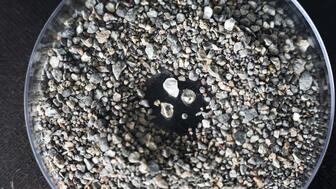
The update came as Anglo took its third write-down on the diamond miner and marketer, which lost more than $500 million in 2025.
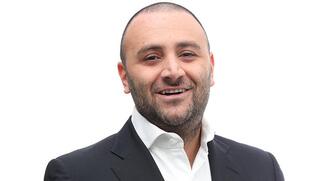
Emmanuel Raheb discusses the rise of “GEO” and the importance of having well-written, quality content on your website.

Every jeweler faces the same challenge: helping customers protect what they love. Here’s the solution designed for today’s jewelry business.
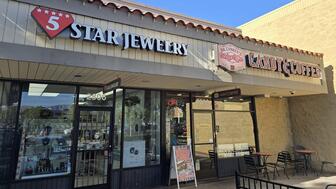
Each received around four years for burglarizing a jewelry store and a coffee shop in Simi Valley, California, last May.

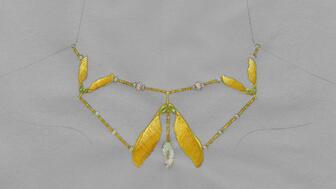
Catherine Aulick, a GIA graduate, received the ninth and final Gianmaria Buccellati Foundation Award for Excellence in Jewelry Design.

We asked a jewelry historian, designer, bridal director, and wedding expert what’s trending in engagement rings. Here’s what they said.
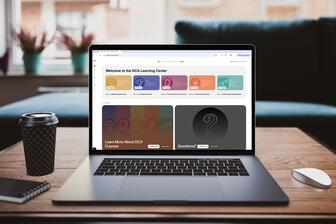
With refreshed branding, a new website, updated courses, and a pathway for growth, DCA is dedicated to supporting retail staff development.
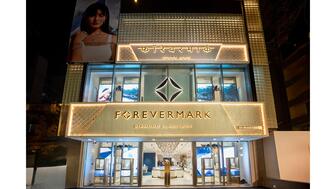
Experts from India weigh in the politics, policies, and market dynamics for diamantaires to monitor in 2026 and beyond.

Are arm bands poised to make a comeback? Has red-carpet jewelry become boring? Find out on the second episode of the “My Next Question” podcast.

The Swiss watchmaker is battling declining sales amid a rapid retail expansion, according to a Financial Times report.
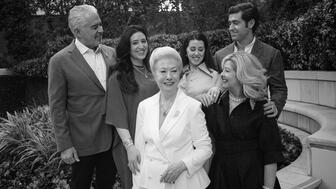
The campaign celebrates Giustina Pavanello Rahaminov, the co-founder’s wife and matriarch of the family-owned brand, for her 88th birthday.
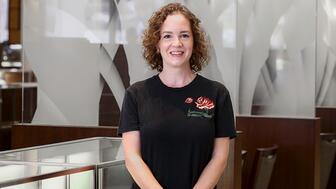
Rachel Bennett, a senior jeweler who has been with Borsheims since 2004, earned the award.
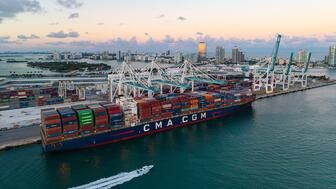
After the Supreme Court struck down the IEEPA tariffs, President Trump imposed a 10 percent tax on almost all imports via a different law.
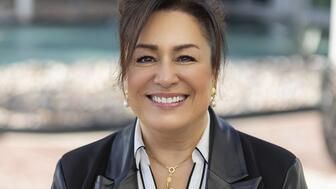
The industry veteran, who was with The Edge Retail Academy for 14 years, joins her husband at the company he founded in 2022.

The vintage signed jewelry retailer chose Miami due to growing client demand in the city and the greater Latin American region.

Former Flight Club executive Jin Lee will bring his experience from the sneaker world to the pre-owned watch marketplace.
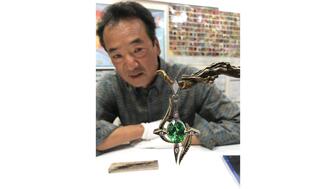
Sakamoto, who died in mid-January following a sudden illness, is remembered for his humility and his masterful, architectural designs.
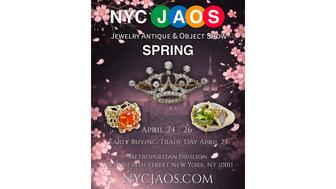
The April event will feature a new VIP shopping day requiring a special ticket.

Bulgari chose the British-Albanian singer-songwriter for her powerful and enduring voice in contemporary culture, the jeweler said.

In a 6-3 ruling, the court said the president exceeded his authority when imposing sweeping tariffs under IEEPA.
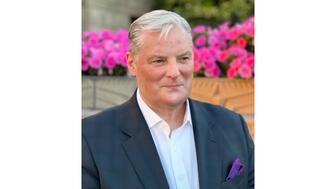
Smith encourages salespeople to ask customers questions that elicit the release of oxytocin, the brain’s “feel-good” chemical.
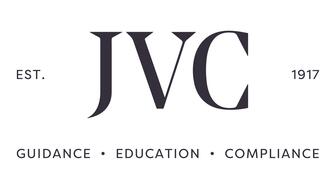
JVC also announced the election of five new board members.
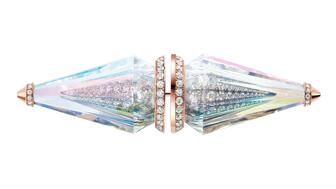
The brooch, our Piece of the Week, shows the chromatic spectrum through a holographic coating on rock crystal.

Raised in an orphanage, Bailey was 18 when she met her husband, Clyde. They opened their North Carolina jewelry store in 1948.

Material Good is celebrating its 10th anniversary as it opens its new store in the Back Bay neighborhood of Boston.
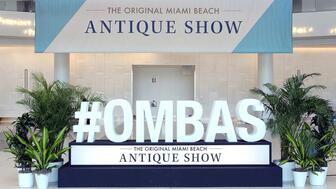
The show will be held March 26-30 at the Miami Beach Convention Center.


